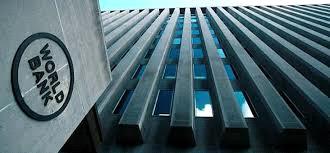-
Top Stories -
Most Popular
-
King: Jordan is moving forward with modernization despite regional challenges
-
U.S. Embassy’s Education USA Fair Honors 75 Years of U.S-Jordan Relations
-
Jordan-Syria travel platform for organization, auditing
-
King: Need to enhance Arab efforts for humanitarian response in Gaza
-
Jordan, Qatar call for end to Israeli aggression in Gaza, Lebanon
-
Death toll across Gaza Strip surges to 43,846, over 103,740 injured
-
ASE Closes with 0.2% Decline, Mixed Share Performance
-
What does the royal dress symbolize on the day of the throne speech?
-
15 Palestinians detained by Israeli occupation forces in West Bank
-
Jordan Ahli Bank Sponsors ‘I Can’ Program Launch in Collaboration with ‘Himmeh w Lammeh’ and ‘Madrasati’ Initiative
-
SSC reports surge in voluntary enrollments, reaches 100,000 active subscribers
-
23 individuals involved in drug dealing, smuggling arrested
-
Israeli forces shoot youth near Ramallah, detain two others
-
Queen Rania Foundation’s Iqrali.jo aims to transform early childhood education in Jordan
-
Army carries out new humanitarian aid airdrop on southern Gaza
-
Water Ministry launches website for 6th Arab Water Conference
-
King urges Arab, friendly countries to join effort to launch humanitarian bridge to break Gaza siege
-
King: Attracting foreign investment is a priority for the Jordanian economy
-
King to open first regular session of National Assembly on Monday
-
King inaugurates TRIP at German Jordanian University
50 million to Support Health Services to Poor Jordanians and Syrian Refugees
14-06-2017 06:48 AM
Ammon News - AMMONNEWS - The World Bank Group has committed US$50 million to support the Government of Jordan in maintaining the delivery of primary and secondary health services to poor uninsured Jordanians and Syrian refugees. |
- no comments
Ammon News reserves the right to delete any comment at any time, and for any reason, and will not publish any comment containing offense or deviating from the subject at hand, or to include the names of any personalities or to stir up sectarian, sectarian or racial strife, hoping to adhere to a high level of the comments as they express The extent of the progress and culture of Ammon News' visitors, noting that the comments are expressed only by the owners.
| name : * | |
| comment : * | |







 comment replay
comment replay 